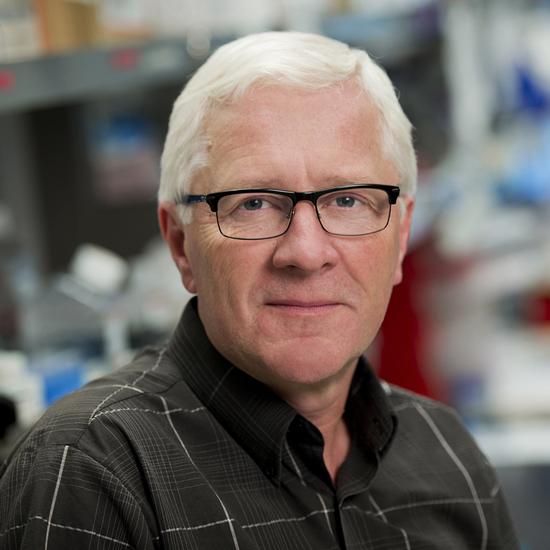John Dick is leading research into the role of stem cells in human haematopoiesis — formation of cellular blood components — and their role in blood cancers such as acute myeloid leukaemia. Notably, he developed a method for transplanting blood cells into immune-deficient mice, leading to the creation of human stem cell assays and leukaemia models.
In the mid-1990s, John was the first to identify cancer stem cells — rare cancer cells that can lie dormant but possess stem cell-like properties of self-renewal, while still producing the bulk of tumour cells. His cancer stem cell model has important implications for cancer treatment as such cells survive conventional chemotherapy — which targets faster-growing cells — and regenerate tumours.
John has received a number of awards, including the Gold Leaf Prize for Discovery from the Canadian Institutes for Health Research (2017), the Dameshek (2005) and Thomas (2009 prizes from the American Society of Hematology, and the Clowes Prize (2008) from the American Association for Cancer Research. In 2017, he was awarded the Keio Medical Science Prize. He became a Fellow of the Royal Society of Canada in 2004 and a Fellow of the AACR Academy in 2016.
Professional position
- Director of the Cancer Stem Cell Program, Ontario Institute of Cancer Research
- Professor, Dept of Molecular Genetics, University of Toronto
- Senior Scientist, Canada Research Chair, Princess Margaret Cancer Centre, University Health Network
- Senior Scientist, McEwen Centre for Regenerative Medicine, University Health Network
Subject groups
-
Health and Human Sciences
Molecular medicine
-
Cell Biology
Developmental biology

